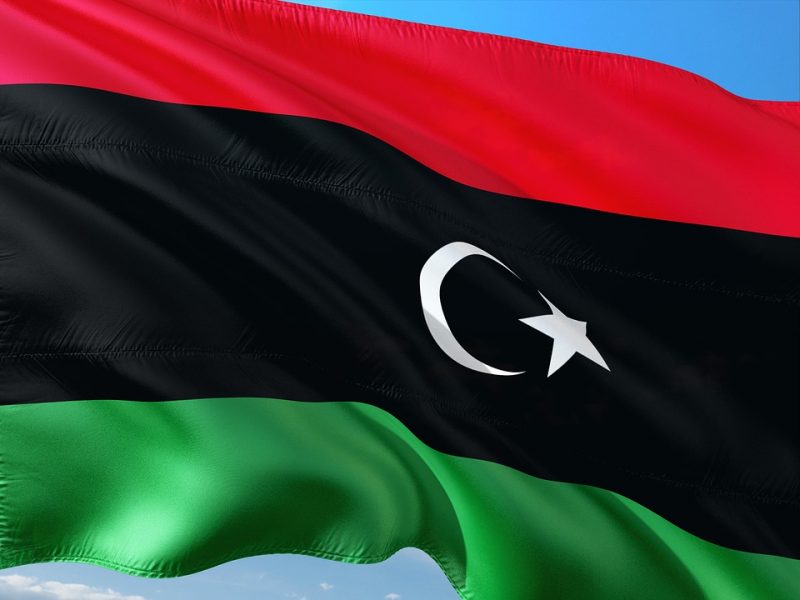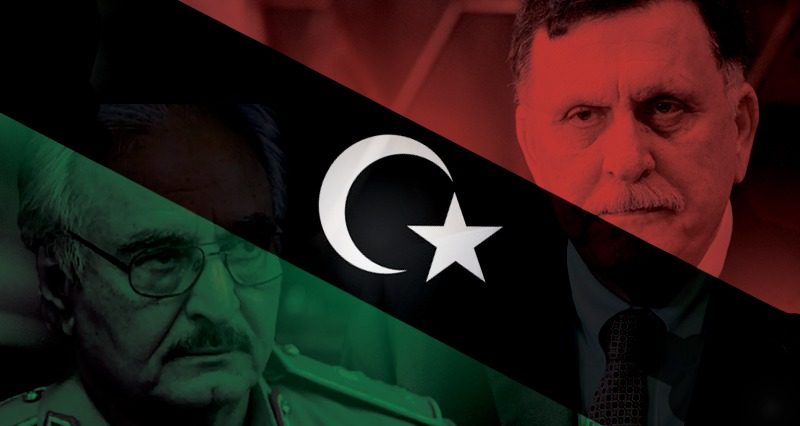Libyan government forces lost 32 people in recent clashes with a rebelling faction of the army. Violence in the country resumed with new force after field marshal Khalifa Haftar ordered the Libyan National Army to advance on Tripoli Thursday, aiming to seize power from the government.
Reuters reports that the southern portion of Tripoli was subjected to air strikes on Sunday. According to residents of the Libyan capital, army units are still making their way to the city center.
Meanwhile, the head of the Government of National Accord, Fayez Mustafa al-Sarraj, is calling Haftar’s actions treasonous.
What happened
On Thursday, Haftar led an attack on Tripoli. On Friday, his units approached the outskirts of the Libyan capital and took control of an international airport.
The Haftar-controlled Libyan National Army attacked Tripoli from the south and west. Pro-government forces responded with air strikes 50 kilometers south of Tripoli and later announced they had regained control of the airport.
On Sunday, the Libyan government’s armed forces launched operation Volcano of Rage (Burkan Al-Ghadab), a military campaign aimed at ending Haftar’s coup.
On Sunday, the UN called on all parties of the conflict to introduce a two-hour truce in the southern part of Tripoli to evacuate the wounded and civilians.

Pixabay
Haftar’s chances
Considering the current balance of power on the battlefield, alongside the support of the Arab world, Haftar has a strong possibility of winning. Haftar’s weakness is that his efforts could lead to the destabilization of the country, whereas al-Sarraj’s weakness will likely be his unpopular pro-Western orientation.
According to experts, Haftar has enough power and support to take Tripoli, but he is nonetheless unlikely to bring all Tripolitania under control.
Haftar is relying on strong support from Gulf countries (with the exception of Qatar) and Egypt. It is interesting that he began the operation in Tripoli right after meeting with the King of Saudi Arabia.
Whatever happens in Tripoli, the main problem for the winner will be the local confederations of tribes and gangs the continually threaten further destabilization.
Consequences
Active conflict is extremely dangerous at the current junction, as the idea of restoring Libyan statehood and stability may disappear as the country descends into chaos. It is possible that as a result of new clashes, opposing enclaves may emerge, with Western countries supporting different factions.
An unstable Libya will also create an open door for migrants to move into Europe. It is therefore in European interest not to support intervention and avoid provoking a new war on the continent.
The partition of Libya would not end there. Too many different interest groups, tribes, separate Berbers and the Tuareg people in particular could create endless instability without a stable central authority.
It is nonetheless likely that the West will intervene. Although the US ostensibly requires congressional approval to take direct action, their reputation for orchestrating regime change and intervention precedes them. Washington is likely to push further destabilization by arming rival groups as usual.
The African command of the US Armed Forces also recently announced their decision to redeploy a contingent in Libya due to the “security conditions on the ground.”
The United States has called on Haftar to stop the attack on Tripoli. The head of the State Department, Mike Pompeo, emphasized that the Libyan conflict has no military solution.
On the other hand, European countries do not have a common position on Libya – for instance, whereas Italy and the UK support al-Sarraj, France supports Haftar. The head of European diplomacy, Federica Mogherini, said that the situation in Libya is becoming an increasing concern. Some western business also began evacuating personnel from the country.
Turkey’s Foreign ministry raised concern over the tension in Libya with a statement on April 7: “There has been a great deal of concern over the dangerous escalation in Libya as a result of a military operation against Tripoli.”
The heads of the foreign affairs ministries of Russia, Egypt and France also called for a diplomatic settlement of the situation. Russia, however, blocked a UN Security Council resolution which would have demanded Haftar’s troops halt the assault on Tripoli.









Leave a Reply